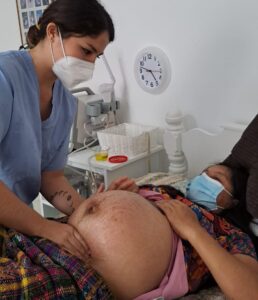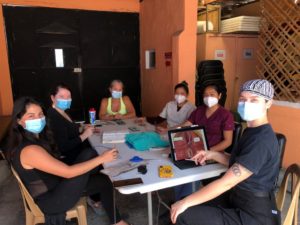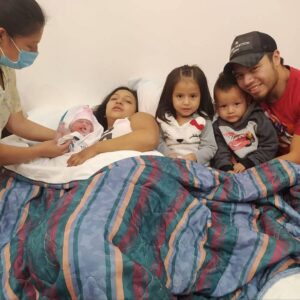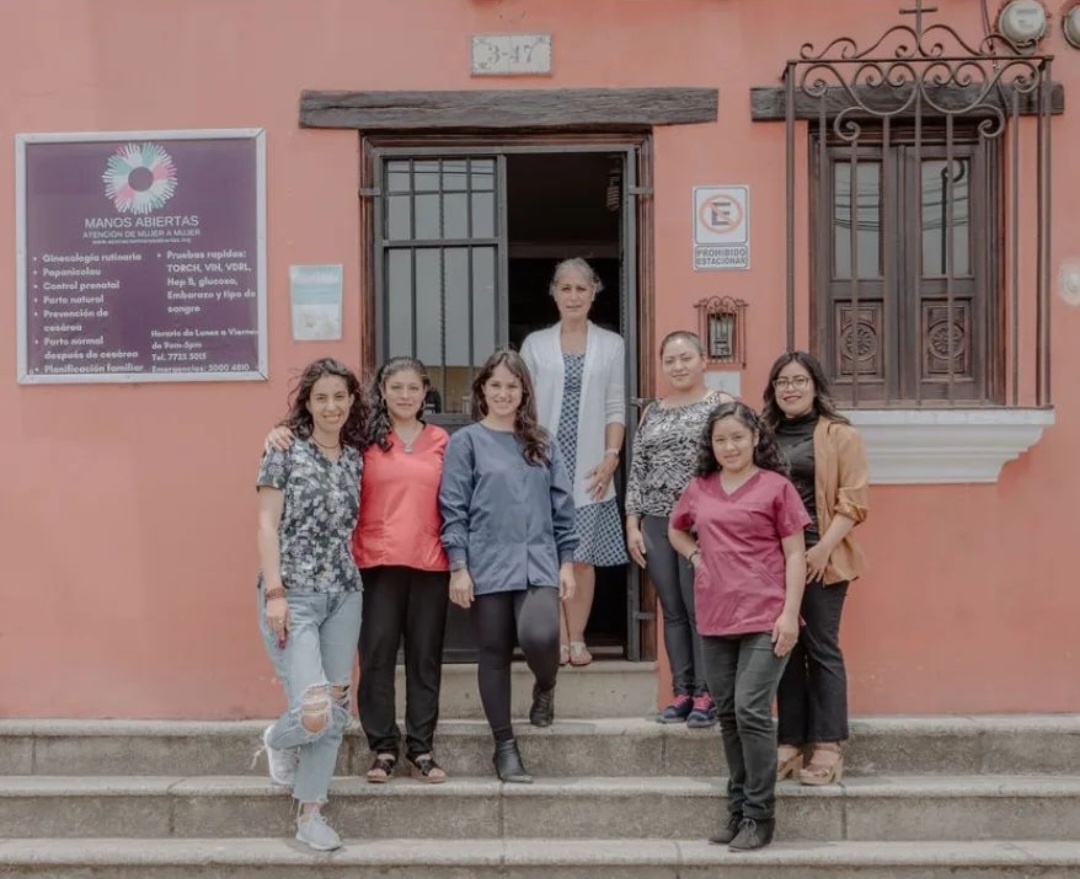Providing holistic woman-to-woman care: Q&A with Manos Abiertas
WriProviding holistic woman-to-woman care: Q&A with Manos Abiertas Through our Global Partners program, Population Connection supports a growing number of grassroots organizations around the world working to increase access to education, public health and family planning services. Their efforts make a vital difference in their local communities and represent the “final step” in our shared work to make the world a more just and sustainable place for everyone. Get to know our wonderful partners in this Q&A series! Below, Diana Samayoa Freiwald, Director of Manos Abiertas, tells us more about her organization’s work to provide vulnerable Guatemalan women with tools to make empowered and informed decisions about their health. Manos Abiertas was founded in 2008 by German midwife Hannah Freiwald in collaboration with the Planned Parenthood Federation of America (PPFA) as a response to the need of the area and country to have better access to sexual and reproductive health services. We wanted to offer the full spectrum of sexual and reproductive health care, not just pregnancy prevention. Our women’s health clinic in Ciudad Vieja is open 9am to 5pm, Monday through Friday, and provides routine GYN care, prenatal care, STI screening and treatment, natural birth services, postpartum care, and lactation support. All services are provided by midwives under the western model of modern midwifery care. We aim to provide holistic, women-centered care that is respectful and evidence-based. We also offer a range of short- and long-acting family planning methods in exchange for a donation. Women don’t need an appointment and can just walk in. We offer discounts and also provide the methods cost-free to the client if they cannot afford it. We do not deny anyone birth control or care. We also travel to remote locations across the country where we operate day clinics, providing family planning and cervical cancer screening services. The services are low cost or no cost to the women, and if the event takes place in a job site, we will ask the organization to cover the full or partial cost. Our birth sponsorship program enables low-income women to give birth with us and avoid unnecessary C-sections and other interventions under the care of our professional midwives. The birth sponsorship donation covers prenatal care, in-house routine prenatal blood work, the birth, and postpartum care. The donor receives information on the family they sponsored and, if the family allows, a picture. In addition, we have a pediatrician who comes in one day per week to do pediatric consults for babies and children up to 16 years of age. As part of our intern program, we welcome student midwives, student nurses, doulas, public health students, and others to participate as interns in our clinic and programs. They live at the center and follow the midwives in all procedures. The internship is for a weekly fee and includes housing. In our resident program, we invite Spanish-speaking graduate midwives with a minimum of two years of experience to work with us and experience running an out-of-hospital birth site. The resident receives a stipend for her work. In the next five years we hope to establish relationships with long-term donors for the different projects we run. We will expand sexual and reproductive health care in day clinics in other locations in the country and train more staff in the holistic midwifery care we provide so we can reach more women and families in need. We are also interested in providing better work conditions for our small but very hard working and committed all-female staff. The main challenge we have faced is sustainability, given that our target population is very under-privileged women. Most women cannot pay the institutional cost of services and often not even the minimum donation, so we often reduce the minimum donation or provide services for free. Finding long-term donors has proved challenging for our small community clinic. Another challenge we have faced is the fact that our model of midwifery care isn’t recognized or supported—apprenticeships cannot become licensed as the profession doesn’t officially exist here. We are very proud of the quality of care we provide. We make a point of educating in each consultation as well as making sure the women are treated humanely and respectfully. The main way people come to us is by word of mouth. We are deeply committed to women’s rights as well as to making sure women’s health is restored and that our clients are aware of how to maintain it. Girls come to us from before they start their periods and throughout their lives for GYN care, such as when they want to prevent pregnancy or when they are ready to start a family. We see them through their pregnancy, birth, and postpartum stages, and we continue to see their children in our pediatric program. We also support the women’s health through menopause. We are also very proud of the team we have built. Our team is composed of only women, and all of them have been trained by us. We continue to provide training under the apprenticeship model and support them so they can reach higher education. We are very thankful for your generous donation. We love would for you to learn more about our project, staff, and community, so, please, if you are ever in Guatemala, come to visit us. To learn more about Manos Abiertas, visit their website and follow them on Facebook!What prompted you to start your organization?

What programs or projects are you currently working on?

What do you hope to achieve in the next five years?
What have been some of the greatest challenges you have faced?
What are you most proud of?

Anything else you’d like to share with Population Connection members?

